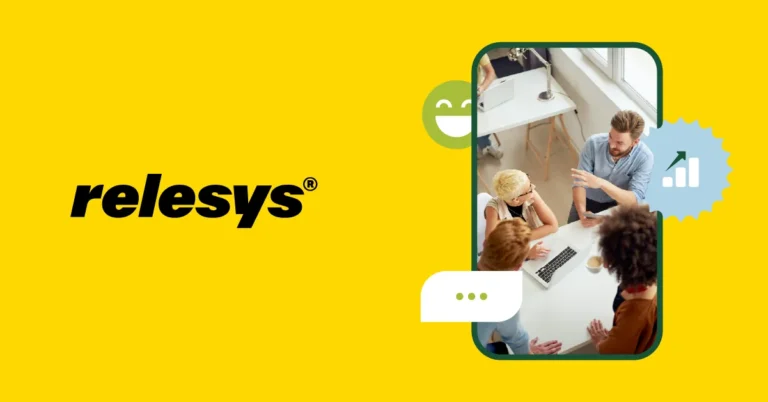Operating an office in Vilnius for a decade, Bentley Systems, an American company that develops software, last week opened a new division in Kaunas. A company representative believes that the company was led to expand to the second largest city in Lithuania to tap into the talent pool outside the country’s capital.
William R. Whitesell found himself at Bentley Systems after graduating from studies in Florida. He had to relocate to the small town of Huntsville in Alabama. Although there are more than 3,000 people working for the American company, the vice president of the company told DELFI that he did not consider the company to be large. In his interview with the online news provider DELFI, Mr Whitesell explained how the company is doing in the market of software for designers and architects and talked about its expansion.
– Let’s start the conversation with your personal experience. You studied computer science back in the eighties. What made you choose this profession? Back then, the IT sector had not yet exploded and perhaps it might have seemed risky to work in this field.
[quote text=”We are very happy with the skills of our employees in Vilnius and we are looking for more talent in Lithuania.” name_surname=”William R. Whitesell” description=”Vice president of Bentley Systems”]
– I finished my studies in 1987. At that time, computers represented an entirely new field. Each day there was something new being discovered or written. I thought that was very interesting. In those times you had to write all code yourself–start everything from scratch. There was nothing ready to start from. For me, as a teenager, that seemed a very good challenge.
At that time, personal computers were just starting to become popular, and the Windows operating system was being developed. Naturally, there were a lot of computers used in business, but about personal computers everything was just starting to grow.
I was doing well and I quickly went from technical thinking to problem solving. This, in particular, is what I like very much even now. This is what makes me stay in the computer and IT sector.
– After completing studies in Florida, you moved from a large city to the town of Huntsville, which has about 180,000 residents and is situated in a remote location in Alabama. How did you feel?
– At that time Huntsville was growing fast. In the eighties, the technology sector had gained quite a lot of momentum. I myself am from a remote location and this place provided for me a very nice balance of culture and city.
I grew up in Florida. It is often hot and muggy there. I was very glad to have settled down in a place where I could feel all four seasons.
– In European minds, Alabama is often perceived as a state of farmers and farming. Actually, Huntsville has a lot of scientists and science centres situated around it. There is the NASA centre and engineering and computer technologies are being developed. How would you describe Alabama?
– When friends ask me why I moved to Alabama, I tell them that Huntsville represents civilization in the middle of cotton fields. Even now there are lots of cotton fields in Alabama.
– Hunstville has positioned itself as a centre of scientists and technological and engineering development. The town cares about attracting good IT and engineering specialists, but it seems that now every young person well-versed in technology aims to work in Silicon Valley. Could those centres be compared? Is Hunstville experiencing difficulties attracting young specialists?
– Of course, they [centres attracting IT businesses] differ by importance. In the USA there is a multitude of technology parks that have strengths in certain fields of technology.
Hunstville started growing with the space programme, but as often happens when you have a programme, companies that provide services for the programme pop up nearby. They are founded and find new specialisations, and thus a technology grows up.
Does it manage to attract employees? Right now, I am working on that, coordinating the employment and internship programmes of college students. We are searching for highly specialised employees. Depending on whether we are searching for an employee in Huntsville or Pittsburgh, Pennsylvania, we look at the profile of each student. If we look at students from MIT (Massachusetts Institute of Technology) or similar universities, we see people who are ready to work 100 hours per week for two years and found their own start-ups. We offer the students a career oriented to the long-term. We are a private company and offer young people long-term employment and career prospects rather than jobs that will have to be changed every three years.
– In Lithuania, the government is constantly pressured about paying more attention to the education system. In the USA, the education system is more based on market conditions rather than political decisions. Are the authorities in the USA doing anything to ensure a sufficient number of IT and engineering specialists?
– The education philosophies embraced by Europe and the USA differ. The US education system is more driven by market conditions. Universities compete on the basis of the kind and number of jobs gained by their graduates. They are interested in telling the student: “Listen, now this is most in demand. If you want to have a job after you graduate, have in mind that employers currently hire such specialists.” Naturally, the final decision will be made by the student. The authorities cannot do much to influence that.
Manufacturing is the field we see the government devoting more attention to. Manufacturing is recovering, but there are no employees qualified to work in this field. Hence, we see the government paying more attention to vocational training than to engineering or IT sciences.
– Why did Bentley Systems decide to establish themselves in Lithuania?
– I would say that was a pleasant coincidence. The growth of the company largely depends on acquisitions and mergers. After acquiring a company here, we found ourselves in Lithuania. We are very happy with the skills of our employees in Vilnius and we are looking for more talent in Lithuania.
– Nowadays software and IT companies have to operate under intense competition. What is the advantage of your company?
– I agree that we have to work under very intense competition. Providing our services, we aim to pay a lot of attention to our consumers. We do not call them customers, but consumers. We are not seeking to match the revenues of such companies as Apple or Google, and this also allows us to focus on the consumer rather than chasing profits.
– You offer your customers software intended for engineering and design. What future do you see in this field? How are the specifics of work going to change for designers and architects?
– Mobile computer science is changing everything we were accustomed to doing. When did you last open a telephone directory? Now we have everything on our telephones and carry them with us.
When we are speaking about graphics and design, specialists who work in this field come from a setting where they spent a lot of time as children playing computer games. Thus, the software they are going to use at work should not be less interactive and instrumental in communicating. The feeling that there is a relationship between you and the colleague with whom you are working on a project, I believe is going to change everything.
The Bentley Systems office in Vilnius employs about 160 people. In Kaunas, there are currently about 10 specialists, but the company plans to increase the size of the team.
Read the full article in Lithuanian at delfi.lt













